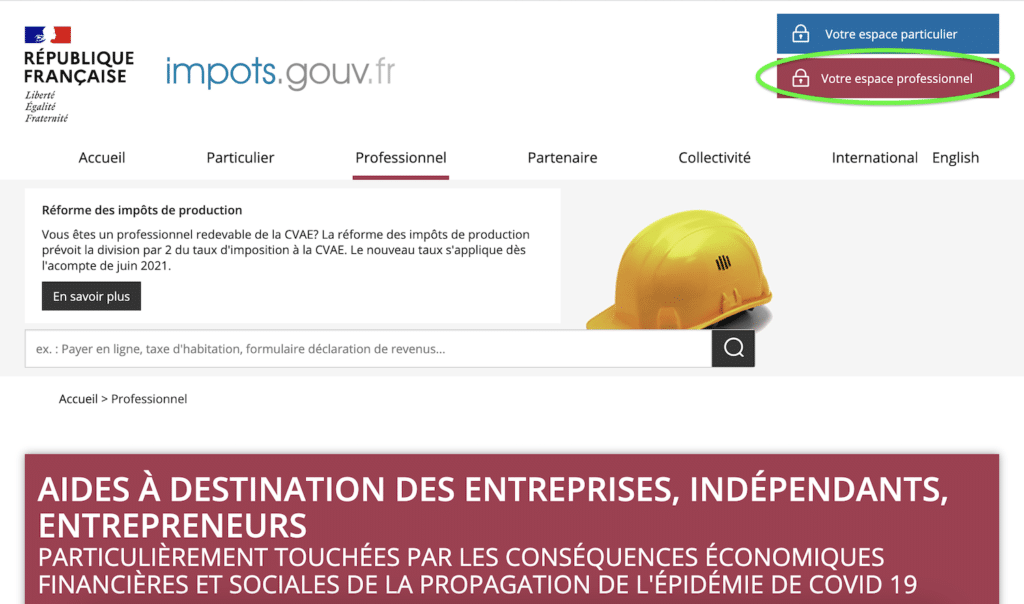What are the micro-entrepreneur taxes? Many new entrepreneurs and freelancers choose the micro-entrepreneur status (also called auto-entrepreneur status) to start their new venture in France.
It often seems very cheap and easy. And it is, but you still need to watch out as this simpler process doesn’t make it 100% easy. We are still in France after all with bureaucracy for everything!
Table of Contents
The most common mistake made by self-employed
It can seem a cheaper option than other company statuses. Once every month or once every three months, we pay social charges as micro-entrepreneurs. We often consider that the rest is our income to live on.
It is a big mistake done by the large majority of micro-entrepreneurs and it is important to know everything that you need to pay as a micro-entrepreneur, not to have bad surprises. I’ll also tell you by the end of this article which should be your target turnover to be able to face all these expenses!
Let’s know break them down!
Social charges
The social charges are to be paid to URSSAF, the French social contribution collector. It is a percentage calculated based on your turnover. The social contribution that pays towards predetermined funds like maternity, healthcare, retirement and training. It is compulsory in France to contribute to healthcare even as self-employed.
The social contribution level will depend on your activity. It will go from 12,8% for purchase & resale up to 22% for other activities.
As an entrepreneur, it is your responsibility to pay either monthly or quarterly your social contributions. No notifications are being sent to remind you of your obligation. So, setting up a reminder will prevent you from paying late fees.
Another great incentive to be compliant is that URSSAF gave several financial aids to micro-entrepreneurs during the covid crisis depending on your turnover level. However, to receive these financial aid, you have to be up-to-date with your social contribution payments.
I have created a quick guide to being a micro-entrepreneur in France, you can see here the VAT section small excerpt from the guide. You can download it for FREE just below for the more complete information.
Taxes
As a simplification, as opposed to the social contributions, taxes are paid to a “large bucket” and the government decides how to allocate this money.
The two main micro-entrepreneur taxes will be income tax and business property tax.
Income tax
As soon as you have an income, you need to declare them. Many criteria are taken into account, like your family size, your family situation, your income level, the type of income…
But as a general rule, a single person earning around €10,000 per year will not be taxable. Beware, that this doesn’t exempt you from declaring your income. The tax office will then determine if you are tax-exempt and will give you a tax notification stating that you are not taxable. This document can be very useful to receive some government aid from CAF for example.
I have written a dedicated article to explain the French tax return. I hope this can help.
CFE (Contribution Foncière des Entreprises)
It is the business property tax that every entrepreneur (not only micro-entrepreneurs) has to pay annually in December from the second calendar year of their activity. This also applies to people working from home or not having a dedicated office, like people working at a client location, etc.
You will very rarely receive a payment notification from the tax office. To pay this tax, you’ll need to create your professional online tax account at https://www.impots.gouv.fr/ and click on Espace Professionnel. This is your responsibility as an entrepreneur and a taxpayer to pay your micro-entrepreneur taxes on time (even without receiving notifications…).
You can request an exemption by email to the tax office via your online Professional Tax account if your annual turnover is under €5,000.
More on the CFE on the official website (translated into English).

Private pension provision (La Prévoyance privée)
Most people don’t think about taking one since the micro-entrepreneurs are registered with French healthcare and contribute to the public pension plan (and to be fair, I first didn’t!). The prévoyance privée will complement the public daily allowance in case of sick leave, incapacity and retirement.
The public allowance and pension are quite low for micro-entrepreneurs so it can be recommended to complement it with a private pension provision. Even if you are not planning to stay under the micro-entrepreneur status for a long time, you may remain longer than expected, so contracting a Prévoyance from the start might be a good idea, or at least being aware of your coverage level.
So it is recommended to get a simulation from an insurance company to know what level of daily allowance is in case of temporary invalidity, or sickness.
Track your professional expenses
Your professional expenses will include everything that you need to work and earn money. Even if you can not deduct expenses as a micro-entrepreneur, you still should track them and see if the lower tax level compensates the number of expenses you can’t deduct from your turnover for tax calculation. Having a thorough tracking system will help you be on top of your business.

Provision for unexpected situations & extras
And finally, you should provision your unexpected situation, such as a COVID pandemic…, losing your main client, unexpected illness. Saving a portion of your profit will keep you afloat in case of unexpected hard times.
And you also want to save for your vacation. Most entrepreneurs don’t earn when they don’t work and invoice, so include your vacation time in your provision calculation and even in the fee you charge!
How to be prepared?
So you’ll need to provision your target turnover to be safe. So it can be a good idea to have as a target the double turnover of your ideal income (the salary you would need if you were an employee). So if your ideal salary is €2,000 then your ideal turnover should be €4,000.
I hope this list helped you understand the different costs you will have as a micro-entrepreneur in France.



